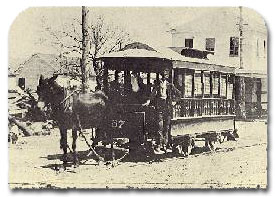OUR LEGACY - Reconstruction
 On
June 19, 1865, Union General Gordon Granger announced the end of the war
and proclaimed, from Galveston Island, the emancipation of Texas slaves.
Thus originated the unique "Juneteenth" celebration in Texas.
To prevent the outbreak of violence, the Federal government stationed
troops in Houston as it did in many other towns. After a brief period
of military rule, an unpopular Reconstruction government, denounced as
carpetbaggers, was established in Texas.
On
June 19, 1865, Union General Gordon Granger announced the end of the war
and proclaimed, from Galveston Island, the emancipation of Texas slaves.
Thus originated the unique "Juneteenth" celebration in Texas.
To prevent the outbreak of violence, the Federal government stationed
troops in Houston as it did in many other towns. After a brief period
of military rule, an unpopular Reconstruction government, denounced as
carpetbaggers, was established in Texas.
Economic difficulties beset the state in the years immediately following
the war, especially in areas such as Houston, which had openly supported
the Confederate cause. Although slow, Houston's recovery followed a steady
course. In the summer of 1867, the worst yellow fever epidemic in the
city's history tragically interrupted the pace. Eventually, however, the
enterprising spirit of the frontier persevered.
Soon, Houston's railroads were connected with the transcontinental system.
By 1882, ten railway lines served the city, and it became one of the railway
hubs of the South. With the formation of the Houston Board of Trade and
the Cotton Exchange, the city emerged as a major center of commerce.
The port, as well as the railroads, received special attention from the city's leaders. In 1869, the Buffalo Bayou Ship Channel Company was created. Its purpose was to widen and deepen (to nine feet) the waterway, in anticipation of seafaring traffic. The following year the company (a private organization with some public support) succeeded in obtaining a congressional designation of Houston as a port of delivery, awarding it federal funds to finance an improvement project. By the late 1870's, the Buffalo Bayou Ship Channel Company deepened the draft to twelve feet, while widening the channel to 120 feet.
On March 30, 1870, Texas was readmitted to the Union, and in August of that year, Houston received a new city charter establishing eight city wards. But the city did not shed the restraints of the despised Reconstruction rule in Texas until 1873, when Texans elected a Democratic governor. In June 1873, Houston was reincorporated as a city, with a population of 9,400 and its earlier republican charter was invalidated.






